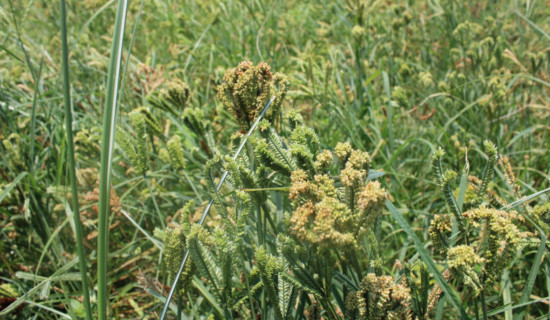- Saturday, 2 August 2025
Artificially Ripened Fruits May Harm Health
Recently, the Department of Food Technology and Quality Control (DFTQC) issued a notice requesting people not to ripen fruits artificially using calcium carbide and warned consumers that consumption of such fruits may cause serious health effects. Vitamins and minerals are abundant in fruits. They play a vital role in preventing deficiencies of Vitamin A and Vitamin C. A healthy diet containing fruits as a component has been shown to prevent many chronic diseases. For a healthy living, the World Health Organisation (WHO) recommends five servings of fruits and vegetables every day.
Fruits have nutritional, commercial, and nutraceutical values and are considered an important component of a healthy diet. There is increased demand for fruits and is instrumental in the use of various artificial ripening methods in their production process. The ripening process determines the health benefits of fruits. The optimum benefits from fruits are obtained from naturally ripened ones. Therefore, fruits should be allowed to ripen on the plant itself. After proper maturity, fruits ripen in nature involving many physical and biochemical events. The process of ripening fruits is irreversible and leads to what is called senescence.
Food safety
Once ripened, the fruits become soft, change in colour, and develop characteristic aroma and flavour, with an increase in sugar level, and consequently, there is a reduction in acid content. During the process of ripening, many factors play an important role including temperature and relative humidity. Food safety and protection of public health should be the top priorities of any government for its citizens. Owing to increased demand and quick return, most fruit sellers and traders use chemicals like calcium carbide for ripening fruits. Calcium carbide itself is toxic to the human body and also it contains traces of arsenic and phosphorus. Banned in many countries of the world, it is freely used in developing countries, including Nepal, for artificially ripening fruits.
There are various reasons for artificially ripening fruits and sometimes, it is not possible to wait for the fruit to ripen naturally. Oftentimes, they need to be transported over long distances and if they are harvested in a ripe stage, get spoilt before reaching the market. In such situations, farmers harvest them much before they get ripe and traders then ripen them artificially at the destination using specific chemicals. The ripening process of fruits starts due to the naturally occurring chemical compound called ethylene. In under-ripe fruit, the level of ethylene is very low, but as the fruits mature, they produce more significant amounts of this chemical that speeds up the ripening process.
Ethylene regulates the expression of several genes, which are involved in the fruit ripening process. Several enzymes then convert complex polysaccharides into simple sugars and make the skin of the fruits soft. In the artificial ripening of fruits, this process is accelerated using chemicals. Chemicals such as chemically synthesized ethylene, methyl jasmonate, calcium carbide, ethephon, and ethylene glycol are used to replicate the ripening process artificially. Ethylene and methyl jasmonate are reported as non-toxic to human health but are expensive.
The most commonly used chemical for ripening fruits is called ethephon (2-chloroethyl phosphonic acid). It penetrates the fruit and decomposes ethylene and initiates the ripening process. Another commonly used chemical is calcium carbide, which produces acetylene, an analog of ethylene. Calcium carbide breaks down the organic composition of vitamins and other micronutrients found in fruits. Besides, it changes only the skin color as the fruit remains raw inside. Industrial-grade calcium carbide is often found contaminated with trace amounts of arsenic and phosphorus, which are toxic to human health. The symptoms of arsenic and phosphorous poisoning include vomiting, diarrhea, weakness, burning sensation in the chest and abdomen, thirst, problems swallowing, burning of eyes, permanent eye damage, and also ulcers on the skin, mouth, and throat.
Calcium carbide is a known carcinogen, which is implicated in causing cancer. Even in low amounts, the chemical is known to have harmful effects on the liver and other parts of the body. Sore throat, cough, wheezing and shortness of breath are other symptoms due of calcium carbide. Consumption of artificially ripened mangoes can cause gastrointestinal upset. It damages the mucosal tissue in the stomach and disrupts intestinal function. For a person who is continuously exposed to chemicals for a long time, there is a chance of peptic ulcers. Several studies have shown that calcium carbide affects the neurological system by inducing prolonged hypoxia and causes symptoms like headache, dizziness, sleepiness, memory loss, and cerebral edema,
Regulations
It is possible to distinguish the artificially ripened fruit. Artificially ripened fruits have uniform skin colors in fruits like mango, and papaya, and in the case of banana, the fruit will be yellow while the stem will remain dark green. The artificially ripened fruits have less flavor and shorter shelf-life in comparison to naturally ripened fruits. It is important to note that if the fruits are available before the season, it could mean they are artificially ripened. Washing and peeling the fruits before eating can minimize the risks due to calcium carbide.
Despite reported acute cases, an increase in commercial calcium carbide for fruit ripening has been reported in recent times, especially in developing countries, as many vendors may consider the toxic effects/risks as negligible. Consumption of fruits ripened with calcium carbide can cause severe health problems; therefore, the use of calcium carbide for ripening is illegal in most countries. Nepal needs to implement Food Regulations, 2027 B.S. strictly in order to protect public health. The take-home message is to avoid eating fruits off-season and even if eaten, they should be thoroughly cleaned and peeled off.
(Dr. Lohani is the clinical director at the Nepal Drug and Poison Information Centre. lohanis@gmail.com)
















